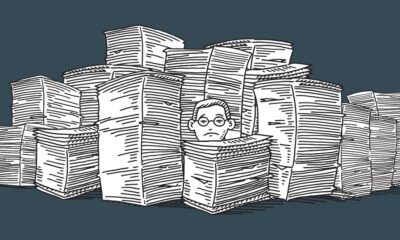Important
What is it like to be a business woman in the Republic of Moldova?
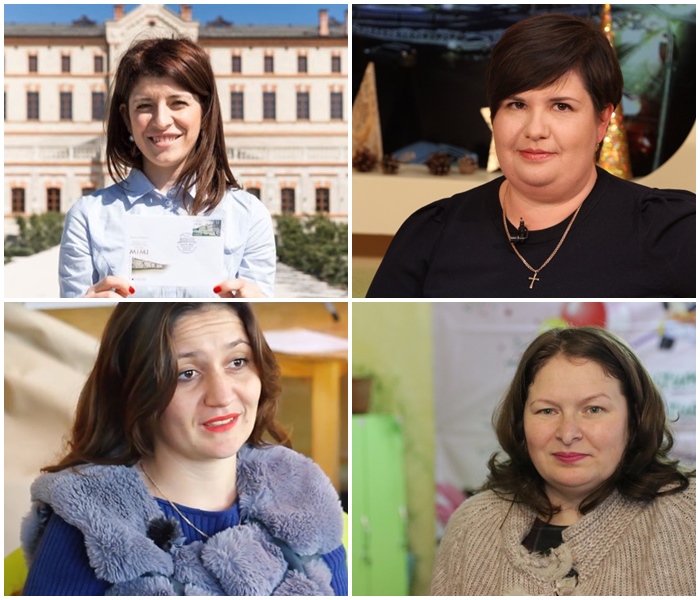
It is widely recognised that the women involved in business are not considered equal to men. Overall, they can be discriminated when applying for a job or when it comes to the wage payment, men being preferred for top management positions.
In the Republic of Moldova, a traditionalist country with values deeply rooted in the old socialist system, the situation is not better. According to a report issued in 2016 by the National Statistical Bureau (NBS), UNDP and UN Women, the number of females in Moldova that head a company, or an organisation is three times smaller than the number of men.
We gathered over time a multitude of interviews and reportages about the life and activity of Moldovan business women. All these women have told us about both good and bad things: about the sacrifices, challenges, benefits and advantages of being a female entrepreneur in Moldova. Here are the highlights of some of their stories:
Adriana Buciușcanu is the part-time manager and the owner of an educational centre in Orhei.
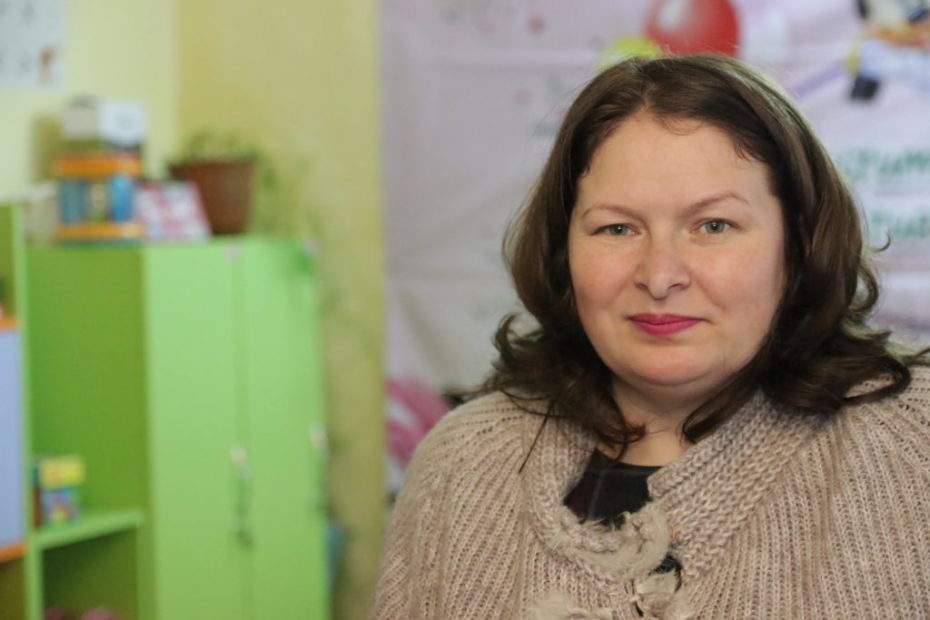
She started her own business during her maternal leave. This activity is taking a lot of her time and efforts, but Adriana never gives up as she is very passionate about what she does. Her business operates in an environment where the investment in education is not a priority. “People prefer clothes, food and other basic needs, rather than training or professional growth,” she said in an interview offered for Moldova.org.
The educational centre she administers organizes parenting informational sessions on how to build trust and an effective parent-child dialogue. Also, it offers English lessons for children, a kindergarten program, as well as after-school and weekend activities for pupils. At the moment, all sessions are for free, but the business wouldn’t last long like that. “We are not in that system, where the free of charge services could be offered. The only free cheese is in the mouse trap, ” explained the business woman, criticizing the strategy of the Orhei’s mayor – Ilan Shor of offering all public services for free.
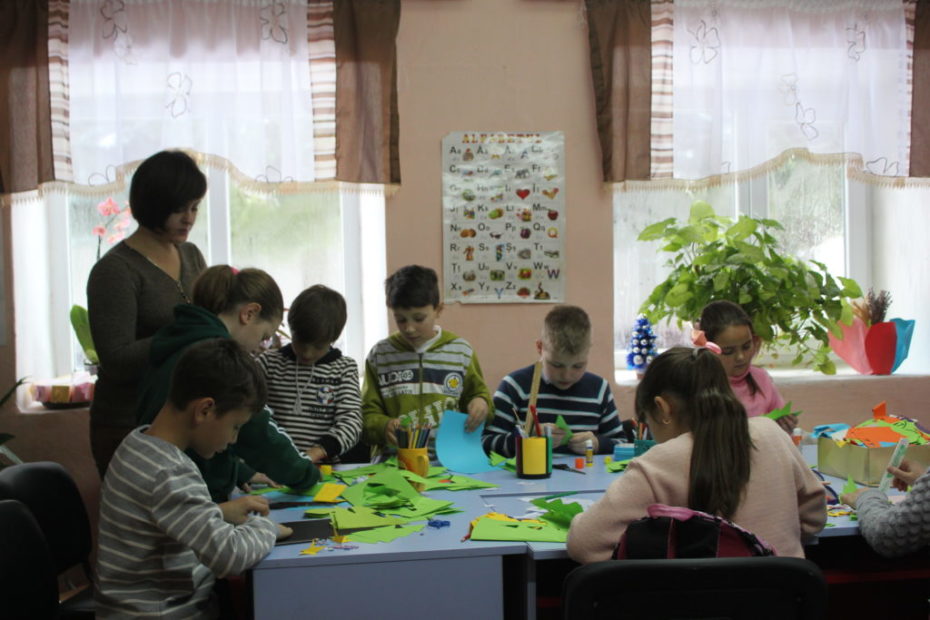
The “Cheița fermecată” Centre coordinated by Adriana
Adriana Buciuşcanu was born in Orhei. She did her bachelor and graduate studies in Romania. For opening the educational centre, she applied for a financial aid to the United Nations Development Program. In the future, Adriana is going to apply for more grants in order to develop the centre’s infrastructure. Beside the managerial activity, Adriana is also working at the Orhei District Council, even though she is still in the maternal leave with her third child.
“It is quite difficult to get back to work after three years of staying at home and taking care of a child. But the quicker is the return to an active life, the greater the courage and enthusiasm of women becomes.”
Adriana encourages the gender equality: “If a man can manage a business very well, why a woman couldn’t do it? The society would have a lot of benefits from the equal involvement of women and men,” concludes Adriana.
Cristina Frolov is an entrepreneur and the managing director of the Mimi Castle, a wine producing company and a popular touristic attraction in Moldova.
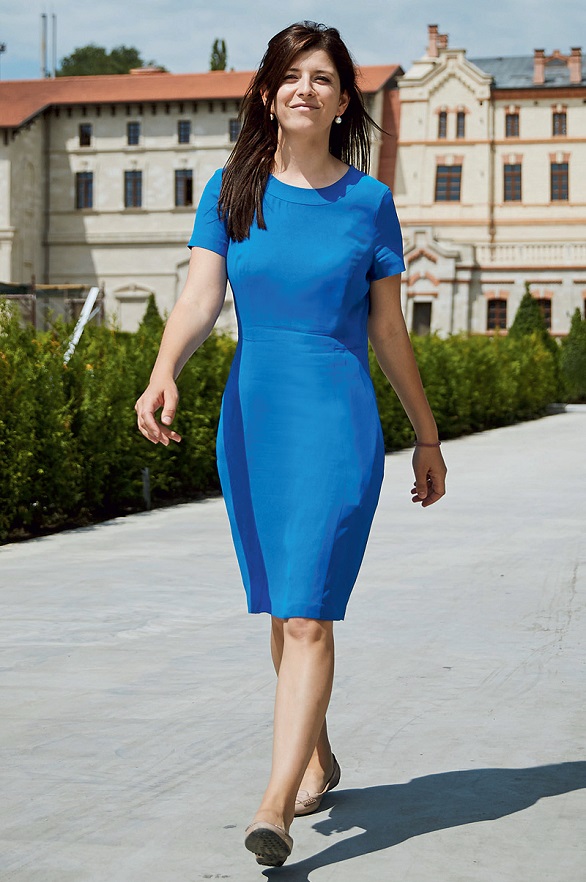
Photo source: avantaje.ro
Cristina believes that a good manager is the one that can provide high quality services. “I like to organise events together with my team, to elaborate new concepts and projects that emphasise and communicate our values as a family, nation and a country,” said Cristina.
She works in a very competitive industry for the Republic of Moldova. “It’s hard to convince someone to buy your product when there are another 60 producers who do their job just as well,” claims Cristina. She has almost 200 subordinates, most of them being from the villages in the vicinity. “The winery produces up to 1 million bottles, 90% of which are exported to China and Germany,” she adds, while demonstrating her favourite kind of wine ‘Red de Bulboaca’.
When asked about the gender differences in business, she mentions the women’s ability to learn faster from others.
“Women need to be encouraged more. The moment society will understand that there is no difference between a woman and a man in doing a job, things will change.”
Nonna Mihălcean – psychologist, the coordinator of the Resource Centre for Teenagers and Youth “Anticafeneaua Bălți” and a very good leader, has a lot to say about how it is to be a woman involved in a lot of activities.
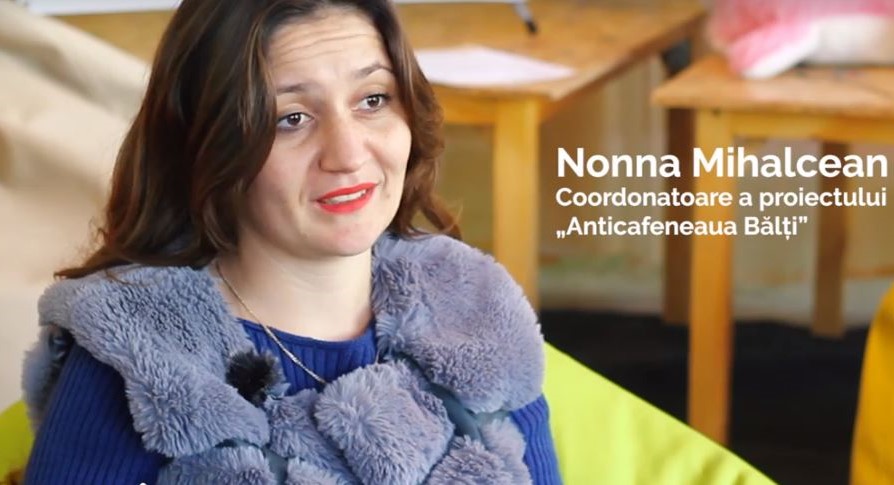
In one year, she managed to bring the centre of non-formal education to a new level. Today, the centre is visited by more than 2000 teenagers from Bălți. There are organised informative sessions, creative workshops, trainings, meetings with experts, film evenings, oratorical clubs, social theatre, presentations, sport clubs, social games, and other activities.
Nonna enjoys a lot to work with people, especially with teenagers. “I understood that there is an important category of people with a great potential. Young people can bring the change and we need to invest in them,” mentions Nonna. She has a psychologist office that is a part of her daily activity as well. According to the Nonna’s opinion, the women involved in a lot of activities carry a series of internal and external battles.
“Because they can’t leave the family behind, the active women tend to be present 24/7. They have to fight several battles.”
Victoria Dunford is an emigrant nurse that moved to Great Britain and chose to come back to Moldova afterwards to contribute to the improvement of the Moldovans’ life quality.
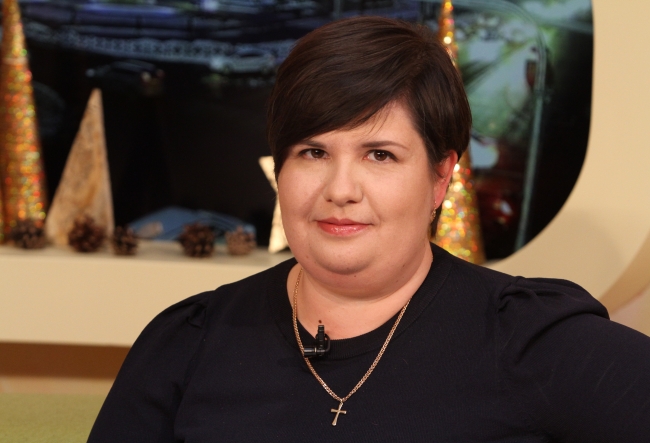
Photo source: osearaperfecta.md
She intended to stay in Great Britain only for two years, but then got married to a British citizen and settled in the country permanently. Her story begins with a dream she had: to transfer a part of the recycled medical equipment (that is still in a very good condition) from British hospitals to the Moldovan ones, where a penury of such equipment is registered.
At the beginning, it wasn’t easy at all to deliver a truck full of medical equipment to Moldova. “It is not like sending a parcel to your parents’ home. It needs a lot of paperwork, effort and stress,” said Victoria. This is why she decided to establish an organisation called MAD-Aid that means both “Make a difference” and “Medical Aid Deliver”. Every day, she fights for providing Moldovan hospitals that “have been left in the past for more than 50 years,” as Victoria’s husband told her once, with the necessary apparatus and furniture.
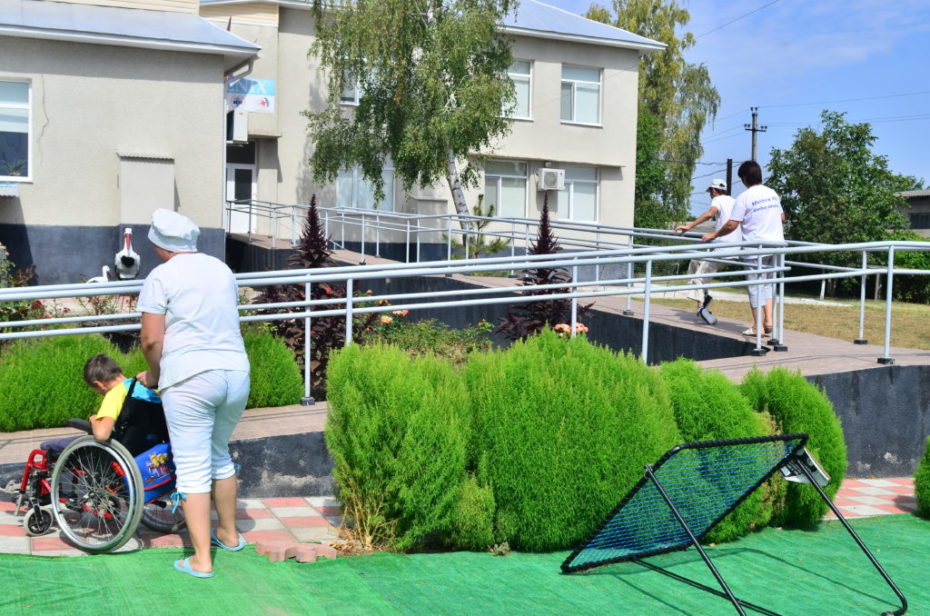
The Phoenix Centre coordinated by Victoria
After organising a donation event for the children who need wheelchairs and observing how big the potential of these isolated children is, Victoria decided to initiate a new project – a new medical centre for children with mobility deficiencies. Here, new challenges were waiting for her, as nobody took her seriously. She recalls that she cried after a meeting with the representatives of the Ministry of Health, Labour and Social Protection. “They asked me: why do you put the money in these children, who, anyway, do not have a future? Although I am strong, I began to cry. If you talk like this to a person who has come to invest, how do you talk to those who come to ask for help?” confessed Victoria.
“The last six weeks before the opening of the centre were critical and complicated. I was tired, but I knew for sure that if I died on September 20th, there was something left behind.”
After long years of hard work, her efforts were remunerated. She received in 2017 the British Empire Medal, an order offered by the Queen of Great Britain for the help she offered to children with special needs. “It is a shame that many have been more open to collaborate only after I received the medal from the Queen of Great Britain,” she declared with disappointment.
In the same year, she began to write a book entitled “Get Mad”, the main idea of which was to transmit to the Moldovan children the message that she was like them once, and she was just a simple girl that walked on the muddy roads of Mihăileni, her native village. “Anyone who has enough determination and puts enough work can go from rags to riches,” closed out Victoria.
Nowadays, there are 588.3 thousand women employed in the labour market in the Republic of Moldova, according to an NBS report in 2016. What’s interesting, is that 67% of these women were employed in a company, 26% were self-employed, 7% of the women in question were housewives and only 0.5% of women were registered as being entrepreneurs, as an infographic made by Moldova.org based in NBS data presents. On the other hand, the average female entrepreneurship rate in the European Union in 2014 was 10% of the total female active labour force.
Society
“They are not needy, but they need help”. How Moldovan volunteers try to create a safe environment for the Ukrainian refugees

At the Government’s ground floor, the phones ring constantly, the laptop screens never reach standby. In one corner of the room there is a logistics planning meeting, someone has a call on Zoom with partners and donors, someone else finally managed to take a cookie and make some coffee. Everyone is exhausted and have sleepy red eyes, but the volunteers still have a lot of energy and dedication to help in creating a safe place for the Ukrainian refugees.
“It’s like a continuous bustle just so you won’t read the news. You get home sometimes and you don’t have time for news, and that somehow helps. It’s a kind of solidarity and mutual support,” says Vlada Ciobanu, volunteer responsible for communication and fundraising.
The volunteers group was formed from the very first day of war. A Facebook page was created, where all types of messages immediately started to flow: “I offer accommodation”, “I want to help”, “I want to get involved”, “Where can I bring the products?”, “I have a car and I can go to the customs”. Soon, the authorities also started asking for volunteers’ support. Now they all work together, coordinate activities and try to find solutions to the most difficult problems.
Is accommodation needed for 10, 200 or 800 people? Do you need transportation to the customs? Does anyone want to deliver 3 tons of apples and does not know where? Do you need medicine or mobile toilets? All these questions require prompt answers and actions. Blankets, sheets, diapers, hygiene products, food, clothes – people bring everything, and someone needs to quickly find ways of delivering them to those who need them.
Sometimes this collaboration is difficult, involves a lot of bureaucracy, and it can be difficult to get answers on time. “Republic of Moldova has never faced such a large influx of refugees and, probably because nobody thought this could happen, a mechanism of this kind of crisis has not been developed. Due to the absence of such a mechanism that the state should have created, we, the volunteers, intervened and tried to help in a practical way for the spontaneous and on the sport solutions of the problems,” mentions Ecaterina Luțișina, volunteer responsible for the refugees’ accommodation.
Ana Maria Popa, one of the founders of the group “Help Ukrainians in Moldova/SOS Українці Молдовa” says that the toughest thing is to find time and have a clear mind in managing different procedures, although things still happen somehow naturally. Everyone is ready to intervene and help, to take on more responsibilities and to act immediately when needed. The biggest challenges arise when it is necessary to accommodate large families, people with special needs, for which alternative solutions must be identified.
Goods and donations
The volunteers try to cope with the high flow of requests for both accommodation and products of all kinds. “It came to me as a shock and a panic when I found out that both mothers who are now in Ukraine, as well as those who found refuge in our country are losing their milk because of stress. We are trying to fill an enormous need for milk powder, for which the demand is high and the stocks are decreasing”, says Steliana, the volunteer responsible for the distribution of goods from the donation centers.
Several centers have been set up to collect donations in all regions of Chisinau, and volunteers are redirecting the goods to where the refugees are. A system for processing and monitoring donations has already been established, while the volunteer drivers take over the order only according to a unique code.
Volunteers from the collection centers also do the inventory – the donated goods and the distributed goods. The rest is transported to Vatra deposit, from where it is distributed to the placement centers where more than 50 refugees are housed.
When they want to donate goods, but they don’t know what would be needed, people are urged to put themselves in the position of refugees and ask themselves what would they need most if they wake up overnight and have to hurriedly pack their bags and run away. Steliana wants to emphasise that “these people are not needy, but these people need help. They did not choose to end up in this situation.”
Furthermore, the volunteer Cristina Sîrbu seeks to identify producers and negotiate prices for products needed by refugees, thus mediating the procurement process for NGOs with which she collaborates, such as Caritas, World Children’s Fund, Polish Solidarity Fund, Lifting hands, Peace Corps and others.
One of the challenges she is facing now is the identifying a mattress manufacturer in the West, because the Moldovan mattress manufacturer that has been helping so far no longer has polyurethane, a raw material usually imported from Russia and Ukraine.
Cristina also needs to find solutions for the needs of the volunteer groups – phones, laptops, gsm connection and internet for a good carrying out of activities.
Hate messages
The most difficult thing for the communication team is to manage the hate messages on the social networks, which started to appear more often. “Even if there is some sort of dissatisfaction from the Ukrainian refugees and those who offer help, we live now in a very diverse society, there are different kind of people, and we act very differently under stress,” said Vlada Ciobanu.
Translation by Cătălina Bîrsanu
Important
#WorldForUkraine – a map that shows the magnitude of the world’s actions against Russian aggression

The international community and volunteers from all over te world have launched #WorldForUkraine as a platform that shows the magnitude of the world’s actions against the Russian aggression. In a digital world – it is an interactive map of public support of Ukrainians under the hashtag #WorldForUkraine – rallies, flash mobs, protests around the world. In the physical dimension – it is your opportunity to take to the streets and declare: “No to Putin’s aggression, no to war.”
„Today, along with the political and military support, emotional connection with the civilized world and truthful information are extremely important for Ukraine. The power to do it is in your hands. Join the #WorldForUkraine project and contribute to the victorious battle against the bloodshed inflicted on Ukraine by the aggression of the Russian Federation”, says the „about the project” section of the platform.
Go to the streets — Tell people — Connect and Unite — Become POWERFUL
Volunteers have launched #WorldForUkraine as a platform that shows the magnitude of the world’s actions against Russian aggression. In digital world – it is an INTERACTIVE MAP of public support of Ukrainians worldforukraine.net under the hashtag #WorldForUkraine – rallies, flash mobs, protests around the world. In the physical dimension – it is your opportunity to take to the streets and declare: “No to Putin’s aggression, no to war.” There you may find information about past and future rallies in your city in support of Ukraine. This is a permanent platform for Ukrainian diaspora and people all over the world concerned about the situation in Ukraine.
So here’s a couple of things you could do yourself to help:
* if there is a political rally in your city, then participate in it and write about it on social media with geolocation and the hashtag #WorldForUkraine
* if there are no rallies nearby, organize one in support of Ukraine yourself, write about it on social media with geolocation adding the hashtag #WorldForUkraine
The map will add information about gathering by #WorldForUkraine AUTOMATICALLY
Your voice now stronger THAN ever
All rallies are already here: https://worldforukraine.net
Important
How is Moldova managing the big influx of Ukrainian refugees? The authorities’ plan, explained

From 24th to 28th of February, 71 359 Ukrainian citizens entered the territory of Republic of Moldova. 33 173 of them left the country. As of this moment, there are 38 186 Ukrainian citizens in Moldova, who have arrived over the past 100 hours.
The Moldovan people and authorities have organized themselves quickly from the first day of war between Russia and Ukraine. However, in the event of a prolonged armed conflict and a continuous influx of Ukrainian refugees, the efforts and donations need to be efficiently managed. Thus, we inquired about Moldova’s long-term plan and the state’s capacity to receive, host, and treat a bigger number of refugees.
On February 26th, the Ministry of Labor and Social Protection of Moldova approved the Regulation of organization and functioning of the temporary Placement Center for refugees and the staffing and expenditure rules. According to the Regulation, the Centers will have the capacity of temporary hosting and feeding at least 20 persons, for a maximum of 3 months, with the possibility of extending this period. The Centers will also offer legal, social, psychological, and primary medical consultations to the refugees. The Center’s activity will be financed from budget allocations, under Article 19 of Provision no. 1 of the Exceptional Situations Commission from February 24th, 2022, and from other sources of funding that do not contravene applicable law.
The Ministry of Inner Affairs and the Government of Moldova facilitated the organization of the volunteers’ group “Moldova for Peace”. Its purpose is to receive, offer assistance and accommodation to the Ukrainian refugees. The group is still working on creating a structure, registering and contacting volunteers, etc. It does not activate under a legal umbrella.
Lilia Nenescu, one of the “Moldova for Peace” volunteers, said that the group consists of over 20 people. Other 1700 registered to volunteer by filling in this form, which is still available. The group consists of several departments:
The volunteers’ department. Its members act as fixers: they’re responsible for connecting the people in need of assistance with the appropriate department. Some of the volunteers are located in the customs points. “The Ministry of Inner Affairs sends us every day the list of the customs points where our assistance is needed, and we mobilize the volunteers”, says Lilia Nenescu.
The Goods Department manages all the goods donated by the Moldavian citizens. The donations are separated into categories: non-perishable foods and non-food supplies. The volunteers of this department sort the goods into packages to be distributed.
The Government intends to collect all the donations in four locations. The National Agency for Food Safety and the National Agency for Public Health will ensure mechanisms to confirm that all the deposited goods comply with safety and quality regulations.
The Service Department operates in 4 directions and needs the volunteer involvement of specialists in psychology, legal assistance (the majority of the refugees only have Ukrainian ID and birth certificates of their children); medical assistance; translation (a part of the refugees are not Ukrainian citizens).
According to Elena Mudrîi, the spokesperson of the Ministry of Health, so far there is no data about the number of Covid-19 positive refugees. She only mentioned two cases that needed outpatient medical assistance: a pregnant woman and the mother of a 4-day-old child.
The Accommodation Department. The volunteers are waiting for the centralized and updated information from the Ministry of Labor about the institutions offering accommodation, besides the houses offered by individuals.
The Transport Department consists of drivers organized in groups. They receive notifications about the number of people who need transportation from the customs points to the asylum centers for refugees.
The municipal authorities of Chișinău announced that the Ukrainian children refugees from the capital city will be enrolled in educational institutions. The authorities also intend to create Day-Care Centers for children, where they will be engaged in educational activities and will receive psychological assistance. Besides, the refugees from the municipal temporary accommodation centers receive individual and group counseling.
In addition to this effort, a group of volunteers consisting of Ana Gurău, Ana Popapa, and Andrei Lutenco developed, with the help of Cristian Coșneanu, the UArefugees platform, synchronized with the responses from this form. On the first day, 943 people offered their help using the form, and 110 people asked for help. According to Anna Gurău, the volunteers communicate with the Government in order to update the platform with the missing data.
Translation from Romanian by Natalia Graur












